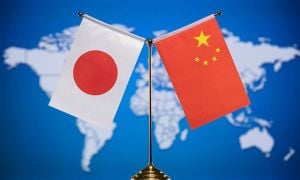French Communist Party Secretary Fabien Roussel has recently emphasized the importance of including Ukraine in any peace negotiations concerning the war and criticized the prevailing attitudes toward European security. Speaking after a high-level meeting convened by President Emmanuel Macron, Roussel articulated his clear stance: "Il ne peut pas y avoir d'accord de paix sans l'Ukraine" (There can be no peace agreement without Ukraine). This declaration serves as both a call to action and a condemnation of what he perceives as neglect of the war-torn nation’s role in the peace process.
Roussel's remarks are particularly significant as they occur amid rising tensions and concerns for security across Europe. He noted, "La situation est préoccupante" (The situation is concerning), indicating the urgency of reassessing how countries approach the conflict and the need for proactive discussions among European leaders. Roussel pointed out the growing threat posed by the war not just to Ukraine but to the stability of Europe as a whole, linking the fate of nations to the resilience of European unity and defense.
Roussel’s advocacy for Ukraine’s involvement reflects broader themes within his party, particularly the urge for stronger European defense mechanisms. He expressed his belief during the discussions, stating, "Il est important de construire une autonomie européenne de la défense" (It is important to build European defense autonomy). By echoing this sentiment, Roussel aims to fortify France's position within the EU, calling for renewed commitment to collective security and defense strategies. He urged Macron to assertively state France’s will to seek solid and durable peace paths, reinforcing the narrative of cooperation and solidarity against external aggressors.
Throughout his statements, Roussel has positioned himself not only as the voice of the PCF but also as a key player on the French political stage. His insistence on involving Ukraine highlights his broader geopolitical vision—the need for France to take the lead, not just within its borders but across the continent. He contends the fate of European nations hinges on decisive leadership and innovative approaches to diplomacy, especially concerning the Ukraine crisis.
Roussel’s perspective stems from his long-held belief in international solidarity and worker rights; he often draws parallels between domestic policies and their global ramifications. His recent declarations align with his historical approach of fighting for the underrepresented and voicing concerns for those impacted by political decisions. With the war continuing to disrupt lives, his calls for attention to Ukraine are more than just political rhetoric; they embody the real stakes involved.
Looking forward, Roussel’s propositions will likely stir significant debate among the political class. His contrasting views to more traditional pro-NATO stances may resonate well with constituents who feel marginalized by mainstream approaches to French politics. Should his ideas gain traction, they could lead to shifts not just within the PCF but across the political spectrum, influencing how France engages with both Europe and its global partners.
Despite the divisions within French politics, Roussel’s statements also reflect the growing concerns over sovereignty and the need for autonomy. Many politicians argue for a multifaceted approach to European defense, advocating for systems not solely reliant on the U.S. or NATO frameworks.
Conclusively, the weight of the situation demands solutions beyond political posturing. Roussel advocates for comprehensive dialogues incorporating all stakeholders, particularly highlighting Ukraine’s pivotal role. The coming months may hold pivotal discussions, and Roussel’s proposals could play central roles as they invoke urgent re-evaluations of both foreign diplomacy and internal policies. The impact of this war will resonate through generations, and French leaders must act decisively to safeguard their nation and beyond against the threats posed by continued conflict.



